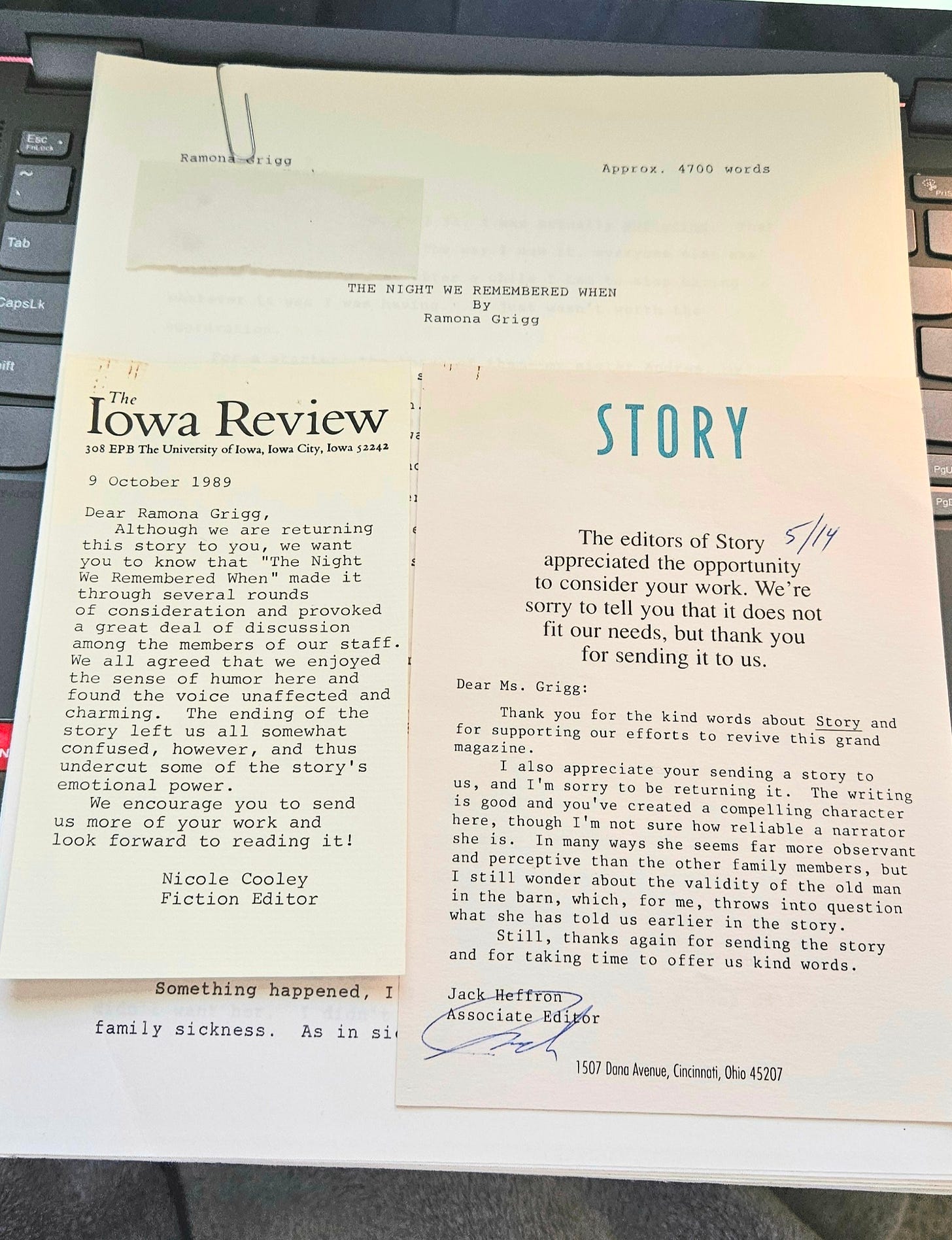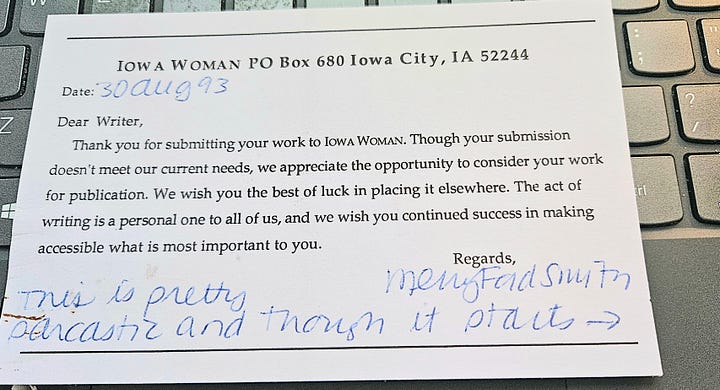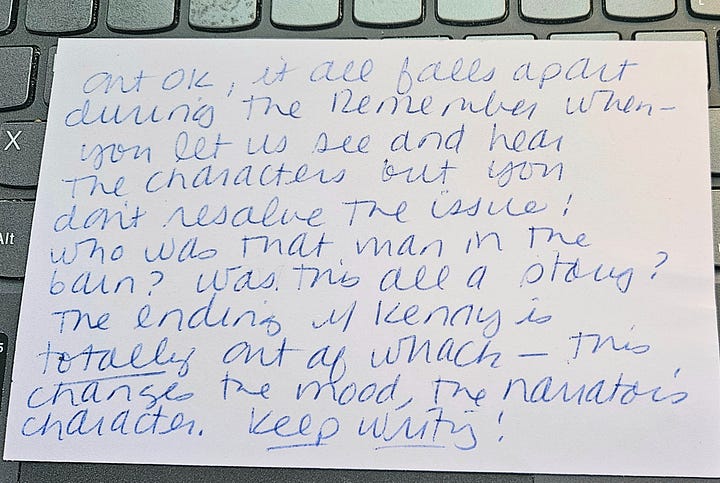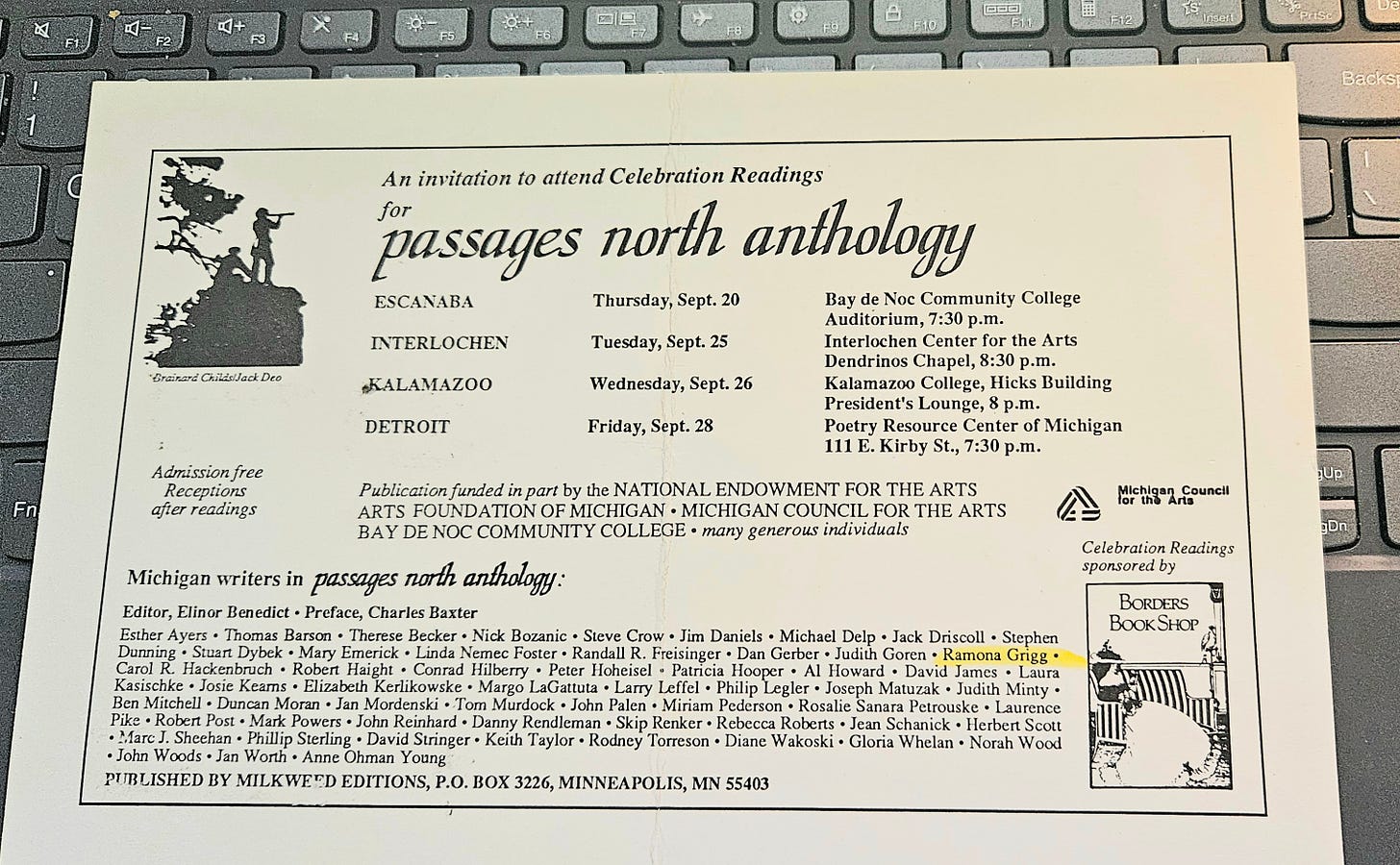
There was a time when I took to writing short stories. I have a whole file full of them, some finished but not good, and others still waiting for an ending. I found the file yesterday while I was looking for something else, and you know how that goes: I looked at a few and cringed and then I looked at a few more and I thought, not bad!
Not good enough, but really, considering how old they are, there might be some gold there…
I’ve only ever had one story published, and it went on to be included in an anthology. It’s called “Why I Couldn’t Love Richard”, and it was published in Passages North when dear, dear Elinor Benedict was the editor.
Besides the honor of having my first and only story published in an anthology, Elinor wrote me to let me know that another editor in North Dakota had nominated my story for a Pushcart Prize. That was exciting! Until it wasn’t. My name never appeared anywhere at Pushcart that year. How embarrassing, after I’d told my writer friends…
But there was this:
And, damn, I was in really good company. I went to the celebration at Interlochen but I chose not to read my story on stage. I knew some of the writers personally, and knew most of the others by name and reputation, having been involved in one way or another with the writerly world in Detroit, and I was so out of their league I wondered how my story had ever been chosen.
I was kind of embarrassed, really.
I felt embarrassed a lot in those days when I was submitting my stories to literary magazines. The rejections were killers. I took them personally and stewed for days over each of them—especially those without personal notes. It’s probably why I stopped doing it and finally filed them all away.
But yesterday I pulled out a few, mainly out of curiosity, to see what kind of writing I was doing before I moved to the boonies in 1994, when I stopped writing short pieces, fiction or nonfiction, and basically closed up shop for 15 years. (I worked on three novels in those years but they were never finished, either. So the way I see it nothing from that fallow period counts.)
One of those stories, “The Night We Remembered When”, came about because I had written a newspaper column about kids and barns and how every kid should visit one, and I told the story about an old man who tried to show me how to milk a cow, and how he would squirt milk at the cats.
When my mother read it, she told me kindly that there couldn’t have been an old man in that particular barn because he had died by suicide long before I was born, and only his sons would have been milking cows. I couldn’t imagine how I could have remembered it so differently, and out of that came a story. Except the mother in the story was a monster. And the protagonist (nothing like me) was known to lie when it suited her or could get her out of trouble.
I see by the rejection letters (pictured above) that I sent it to Iowa Review and to Story Magazine, and got hand-written comments. Not what I wanted to read, but even then I knew any writing besides the canned, “Sorry, this is not for us”, was considered a good thing.
So they found flaws. After each rejection I read it again and I decided they were wrong. I was IN LOVE with my story! I filed it away for a few more years, and in 1993 I see I sent it out again, this time to Iowa Woman. And again, the same problems cropped up.


Seriously??
But yesterday, from my vantage point of some 30 years, I had to laugh. Because this time I’m reading my story as a somewhat disinterested editor would, and you won’t be surprised to learn that I have to agree with those editors.
It starts off really good, and then, just when I might have hooked my reader, I leave them hanging. And worse than that, for some ungodly reason I take a completely different tack at the end, and…
It makes no sense!!!
So there it sat, in a forgotten 30-year-old file, this story that I loved so much and wanted to protect because those meanies just didn’t get it. When I could have listened to them and worked on it until I got it right. And maybe even had my second short story published. And maybe that would have spurred me on to dig into those files and finish some of the others.
So heed this, my friends. If even one editor questions your work, let alone three of them, and they all find the same flaws, it’s not a signal to hide your stuff away for years or even decades. It’s a signal that something is off.
And lucky you, you get to fix it.
And maybe now is never too late.




Mona, I absolutely love this! Revisiting your writing from a (long) distance and with a new perspective. I am feeling very tender towards young Mona and her stories. She kept trying, at least for a while. She was stubborn! She was proud! And the misremembering about the man in the barn… pure gold. Will you try to fix that ending—and then post here on Substack?!
I sent a short story out once which received the standard rejection slip, but at the top of the first page written in a flowing hand was “Lovely!!” Two exclamation points, even. If it was lovely, why…? Not terribly helpful, but that should have been enough signal to have kept revising it. The best critical advice I ever received on a piece I had sent to one of the old sci-fi and fantasy mags. It said simply, “This is too fantastic even for us.” Lol! That spoke volumes to me, though, when, for the first time, I realized you have to have enough reality to coax your reader into the “willing suspense of disbelief.” By the way, I think your old man in the barn idea is GOLD!